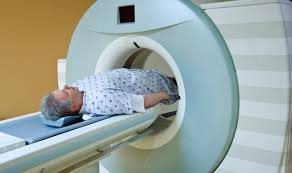Debunking Myths About Radiation Therapy

Ahead of World Cancer Day 2018, Targeting Cancer is keen to dispel some of the myths around radiation therapy as a potential cancer treatment. Here is one patient’s account of how radiation therapy not only helped cure his prostate cancer, but did not stop him living his life:
When David* was told he had prostate cancer, he was determined to receive not only best possible treatment for him, but also the least invasive.
The married father-of-three from western Sydney was diagnosed with prostate cancer in late 2012 – serious news for a 65-year-old man who led an active life and ran a demanding business.
David was initially advised by his urologist to have a prostatectomy – surgical removal of his prostate – but decided to research other treatment options.
“I was also offered hormone therapy, chemotherapy, brachytherapy and radiation therapy as potential treatments,” he said.
“I didn’t know too much about radiation therapy, but after talking to the radiation oncologist to understand how it worked and what the pros and cons were as my prostate cancer was not at the life-threatening stage, I concluded that radiation therapy was right for me.
“It seemed to have a low chance of serious side effects and was a non-invasive and convenient method of treatment for me.”
David started his 10-week, five-days-a-week course of treatment each working day at Sydney’s Westmead Hospital and was quickly impressed by the relatively quick and painless radiation therapy treatment he received.
“The treatment sessions themselves were all over very quickly – a matter of minutes,” he said. “I was probably in the waiting room longer than the treatment took.
“It was painless and it was also very convenient. I could have my treatment early in the morning and allowed me to head to work by 8.45am.
“I also had virtually no side effects like nausea or sickness that other treatments may have caused. Other people in hospital would ask me after treatment if I was going home to rest, but I’d say no – I’m going back to work.”
David, who at the time ran a busy direct marketing business in western Sydney, said he was able to continue his day-to-day life virtually unchanged throughout treatment.
“Apart from close family and friends and a couple of work colleagues, I didn’t tell anyone about my treatment,” he said. “No-one noticed a thing and I was able to continue my life as normal.
“My job involved carrying and lifting things, but my radiation therapy treatment didn’t interfere with that. I was also able to continue exercising.”
David’s radiation therapy successfully got rid of his cancerous tumour, reducing his prostate-specific antigen (PSA) to minimal, non-threatening levels.
He continued to receive yearly check-ups but was recently given the all-clear.
“I wanted to see my daughter, who is now at high school, grow up,” David said. “My treatment has allowed me to do that.
“It’s important to know that everyone needs to consider their own different treatment and what’s right for them. For me, though, radiation therapy proved the most convenient and painless method of treatment.
“It didn’t interfere with my life then – and it hasn’t interfered with my life since.”
He retired from his business in 2016 but keeps busy teaching English to secondary school students – showing there is life after cancer treatment.
“You can only spend so much time pruning roses,” he said. “I was keen to continue living my life.
“It’s important to remember that cancer is not necessarily a death sentence. Your life and the lives of those you love are too important for you to sit around feeling sorry for yourself.”
With an estimated 17,000 Australian men expected to be diagnosed with prostate cancer in 2018, grandfather-of-four David said that, whatever treatment a patient chooses, early diagnosis and intervention is vital.
“I’ve had people say to me they don’t want to go to the doctor for examination, but it’s worth having the conversation with your doctor and if you have symptoms or a family history of prostate cancer, definitely check it out,” David said.
“My advice to other men, especially those over 60, is to ask your doctor about having the PSA test. Treatment isn’t always needed straight away for prostate cancer and your doctors will explain why.
“Get the treatment you need but do your research and get that second opinion with the radiation oncologist.”
For more information about prostate cancer, click here.
For more information about radiation therapy and how it can help in cancer treatment, click here and here.
For more on prostate cancer treatments, click here.
*Surname withheld at patient request.




